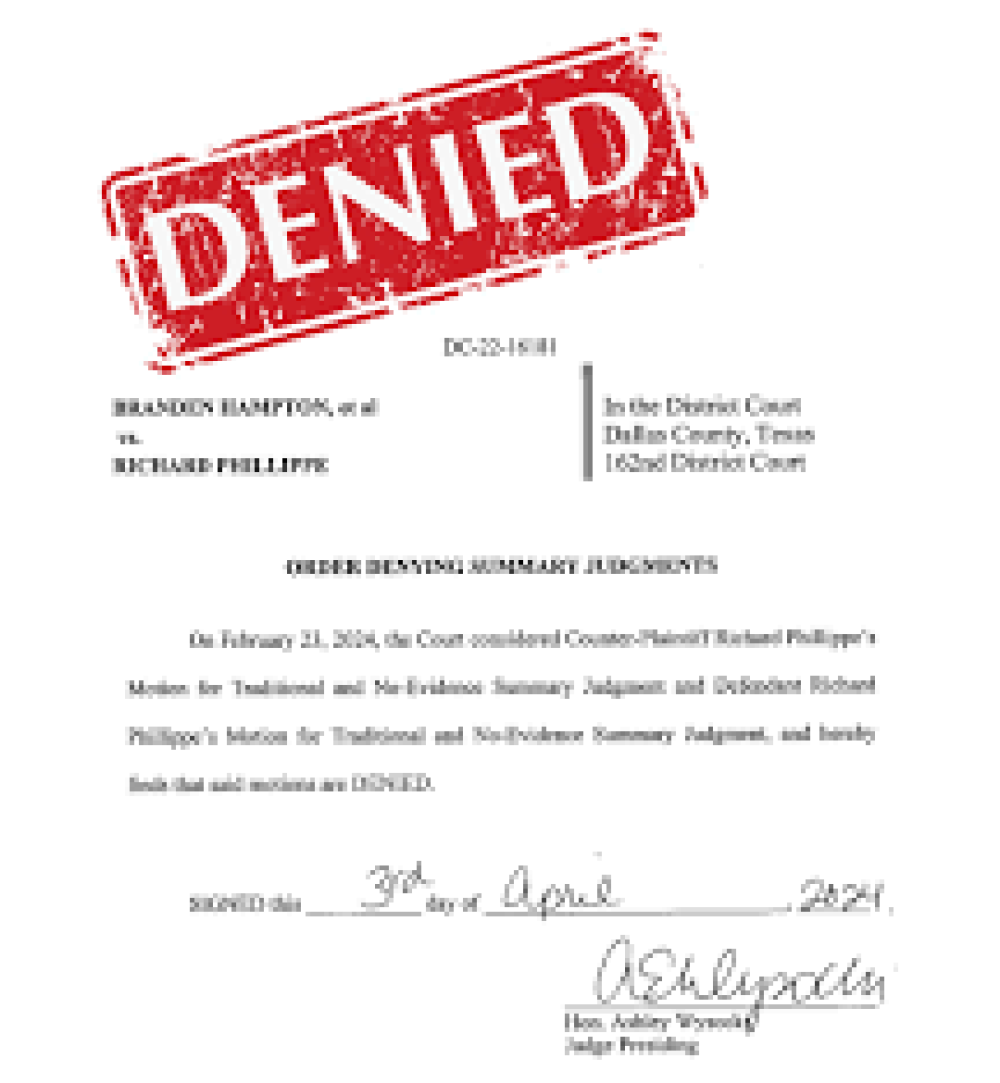Get Your Legal Documents Now!
Whether you are dealing with a complex family matter, facing criminal charges, or navigating the intricacies of business law, our mission is to provide you with comprehensive, compassionate, and expert legal guidance.

A motion for summary judgment (MSJ) can be a powerful tool in litigation. If granted, it resolves all or part of a case without the need for trial. But what if the court denies the motion?
While a denial can feel like a setback, it is far from the end of the road. In fact, it can open new opportunities for case strategy, settlement, or trial preparation. Understanding what a denial means and how to respond is critical to keeping your case on track.
In this blog, we’ll explore what happens when a motion for summary judgment is denied, why it happens, and the strategic steps you can take next. If you need support with motion drafting, responses, or trial documents, Legal Husk offers professional legal drafting services tailored to your needs.
What Happens If a Motion for Summary Judgment Is Denied?
Introduction
A motion for summary judgment (MSJ) can be a powerful tool in litigation. If granted, it resolves all or part of a case without the need for trial. But what if the court denies the motion?
While a denial can feel like a setback, it is far from the end of the road. In fact, it can open new opportunities for case strategy, settlement, or trial preparation. Understanding what a denial means and how to respond is critical to keeping your case on track.
In this blog, we’ll explore what happens when a motion for summary judgment is denied, why it happens, and the strategic steps you can take next. If you need support with motion drafting, responses, or trial documents, Legal Husk offers professional legal drafting services tailored to your needs.
Understanding What a Denial Means
A denial of a motion for summary judgment means the court has determined that there are genuine disputes of material fact that must be resolved by a judge or jury at trial. It does not mean the case is over or that your arguments were invalid.
In essence, the court is saying: “There is enough conflicting evidence that this issue should be decided at trial.”
There are two types of denials:
Common Reasons Why a Summary Judgment Motion Is Denied
Immediate Implications of a Denial
Even though the motion is denied, the evidence and arguments raised may still influence how the case unfolds at trial.
Strategic Options After a Denial
1. Refine Your Trial Strategy
Use the court’s ruling as a roadmap for trial preparation. Analyze the court’s reasoning to:
2. Consider Settlement Negotiations
Sometimes, a denial of summary judgment motivates both parties to:
3. File Motions in Limine
You can file pretrial motions to:
4. Prepare for Trial with a Focused Plan
The denial narrows down what must be addressed at trial. Use this to:
5. Preserve the Issue for Appeal
A denied MSJ doesn’t usually allow an immediate appeal, but you can:
Preserving your arguments throughout the trial can strengthen your position on appeal.
Can You Refile a Motion for Summary Judgment?
Yes, in limited cases. You may:
However, courts generally expect parties to file one well-supported MSJ, so refiling is rare and must be justified.
How Legal Husk Can Help
At Legal Husk, we provide professional litigation support for every stage of your case. Whether your summary judgment motion was denied or you're preparing for trial, we offer:
You can purchase our services directly online and receive expertly prepared documents that strengthen your litigation plan.
Final Thoughts
While a denied motion for summary judgment may seem like a setback, it can be a valuable turning point in your case. By understanding the court’s reasoning and adjusting your strategy, you can go into trial—or settlement—with renewed focus and strength.
Whether you need help responding to a denial, preparing for trial, or drafting powerful court documents, Legal Husk is here to support your success every step of the way.
📩 Contact Legal Husk today to purchase professionally drafted litigation documents and move forward with confidence.
Whether you are dealing with a complex family matter, facing criminal charges, or navigating the intricacies of business law, our mission is to provide you with comprehensive, compassionate, and expert legal guidance.
Comments